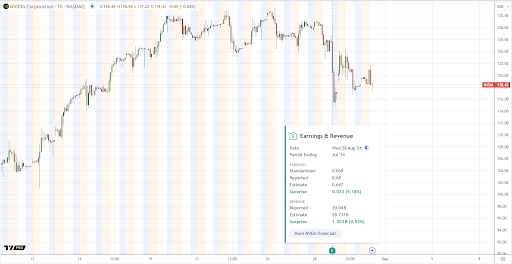The latest earnings report from Nvidia, one of the leading GPU manufacturers, led to an unexpected drop in shares of other major technology companies. At first glance, Nvidia’s results seemed stellar: the company reported record revenues, boosted by growing demand for chips in artificial intelligence and gaming. However, as is often the case, good news for one company can negatively affect the entire industry.
The market interpreted Nvidia’s report as a sign that demand for high-performance technologies used in computing, AI, and cloud services continues to grow. At the same time, investors began to critically evaluate other companies in the sector. Shares of AMD, Intel, SK hynix, Samsung Electronics, Foxconn, and various cloud computing companies came under extreme pressure.
Investors are trying to predict whether any other company can replicate Nvidia’s success. Growth-focused companies are particularly vulnerable to changes in market expectations. When Nvidia delivers strong results, other companies need to show similar or better performance to maintain investor confidence.
The ripple effect of sudden success can fuel innovation race, driving up development costs. As one company succeeds, others often increase their investments, which can temporarily reduce profitability and lead to grim revenue forecasts.
Nvidia’s success also highlighted the reliance of other technologies on graphic performance and data processing tools. This could prompt a reassessment of companies that have failed to update their technologies or are unprepared for the rapid growth of business requirements.
Shares of Samsung Electronics and SK Hynix took a hit. SK Hynix, the main supplier of HBM3E memory chips for Nvidia, is particularly vulnerable if sales of Nvidia’s accelerators slow down for any reason. Samsung is less affected, as its HBM3E chips have yet to be certified to meet Nvidia’s needs.
Major market players like AMD and Intel felt the brunt of Nvidia’s report. These declines caused investor anxiety, leading to a reassessment of their future amid growing competition from Nvidia. ARM processor developer and its clients, Qualcomm and Broadcom, also saw negative trends in their stock prices. Super Micro, a server equipment manufacturer, lost 20% of its market value the previous day.
Other high-tech companies, including Alphabet (Google’s parent company) and Microsoft, experienced a similar impact, as market volatility and a reassessment of their positions in cloud computing and AI influenced their stock performance, as reflected in MSFT stock chart.
In this environment, investors begin to reconsider their positions, and frequent market fluctuations can create a chain reaction due to negative perceptions of future trends. Nvidia high stock price is forcing investors to rethink their strategies, which introduces more risk. There’s growing concern that the market might be overheating, and even a minor event could lead to a major stock drop.
In the long run, the drop in shares of other tech companies after Nvidia’s report may signal deeper structural changes in the industry. Potential consequences include:
- Reallocation of resources: Companies may begin revising their technology investment strategies to align more with the trends set by Nvidia.
- Increased competition: The rise of new players who can offer similar or better technologies may drive faster industry development, technological advancement, and increased productivity.
- Building more resilient business models: Tech companies may start looking for business models that can better withstand market volatility and economic fluctuations.

Interesting Related Article: “Industries Revolutionized By Artificial Intelligence“
